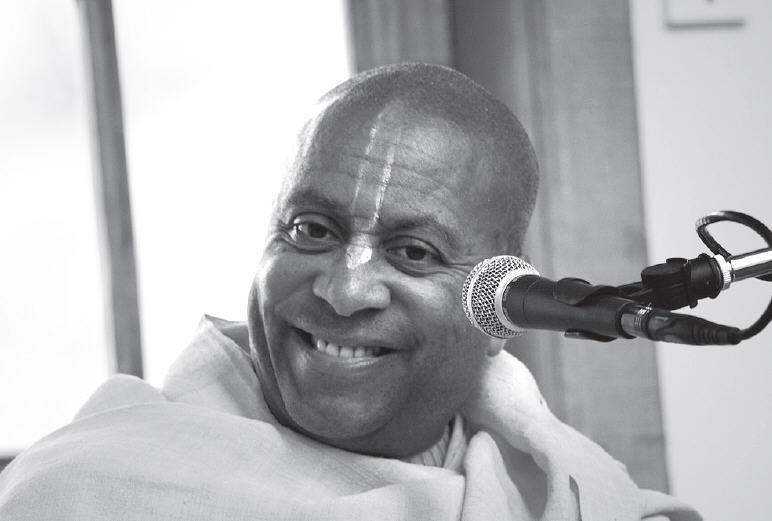
You offended me," the young university student leaned into my face and charged.Sitting with students at the University of Melbourne, Australia's premier school, I had just finished a presentation "Consciousness: Pleasure Beyond Time and Space."
Earlier, the same student had challenged me, during the questions following my lecture. Turning to face the audience, she had triumphantly asserted that since the awareness of a baby differs from an adult's, therefore we know as fact that consciousness is a biochemical product, emerging from the body's various phases.
Patiently and gently, I had sought to deal with her fuzzy logic and fiction-science. "Let's just consider a baby. Exactly when and how does the baby body suddenly manufacture consciousness? Or does it arrive from the mother,through the umbilical cord?"
Moreover, what are the biochemical catalysts for consciousness – what none can demonstrate is a material substance, whether in a new born or an adult? Conscious, subjective awareness arising from inert matter – isn't this a faith? I reassured her, though, that many academics now agree myth and legend play a psychologically positive role in human society.
"Enter the laboratory of Bhagavad-gita," I invited. Explore Krishna' s presentation of consciousness as the sure indicator of the nonmaterial self, the atma. "In the same way that the sun illuminates this entire world, similarly the non-material spiritual particle, the atma, illuminates the entire body by consciousness." (Gita 13:34)
Offering time-tested techniques for verifying His spiritual information, Krishna, the Supreme Scientist, is open and magnanimous – like any respectable university, to a qualified applicant. On the other hand, where is the research institute that can provide us any methodology allowing even the slightest experience of matter producing consciousness? Reminding ourselves that not one scientific instrument in the world can directly detect the presence of consciousness, we humbly scale back our matter-centric hopes.
"Some perceive the nonmaterial self, the atma, as wondrous; some describe it as amazing, and some hear of it as incredible. Meanwhile, others, even after encountering knowledge of the atma, cannot comprehend the subject at all." (Gita 2:29)
The provocative student resuming silence, another student quite politely requested me to resolve something he said puzzled him. "We all know that gorillas are not conscious, whereas humans are. Since it is a fact that everything develops through evolution, why this difference between humans and animals?"
"When did you last visit the world-class Melbourne Zoo?" I nudged. Then, working to maintain a straight face, I asked the young man had he noticed any difference between the behavior of the gorillas sporting under their trees and the frolics of students strolling to their classes. "Both creatures lustily cavort in public." The audience smiled knowingly.
"More importantly," I continued, "leaving aside evolutionary controversies about entire bodies developing completely by random selection from who knows what, I would like to hear the proposed evolutionary phases for the gradual biological appearance of consciousness."
After the final questions, the students lined up to achieve an exquisite lunch of Krishna-prasada. Immediately the young lady challenger pounced upon me, positioning herself a few inches from my nose. "Your lecture has offended me!" she accused.
Why? I thought, quickly scanning her for a cue. Certainly she may not have digested everything in the lecture, but why the zealousness, the passion, the inner torment?
She enlightened me on the spot:
"I am a rational atheist. You should be more careful and sensitive, to not disturb our kind. Rational atheists are an important sector of society; their presence should be duly acknowledged and respected."
I always tell our bhakti outreach staff at universities that we are not a debate club. Argument-mongering is not our business; friend-making is. Surrounded by the slurping, munching sounds of eighty happy students processing Krishna' s presence as divine food, I chose to duck the young lady's lance, complimenting her on her courage to be broad-minded.
But she wasn't finished.
"One minute you quote scientific research, and the next, Bhagavad-Gita – it's not fair! What's more, the Gita was spoken by Krishna – a guy! And all those Vedic sages you Krishna people adore – they're guys!"
I edged back a bit, to create some breathing room. Suddenly my voice dropped, my eyelids drooping. "Sorry for my fatigue," I softly lamented. "I guess the long lecture I gave plus the fascinating questions the audience asked combined to wear me out." Much as she tried to press me, definitely I was not going to do battle with her radical feminism.
"Oh well," she relented. "I'm gonna get some food. Actually, I just attend the weekly Bhakti Club gatherings here simply and only to eat."
I nodded in agreement: "Yes, me too."
Later, across the room, I spotted her among the crowd, heartily devouring Krishna' s lunch mercy. Walking over, I submissively inquired if I could bring her more, and encouraged her to keep coming – only and just to eat.
Devamrta Swami, a graduate from Yale University, is a disciple of Srila Prabhupada. He serves as an initiating spiritual master in ISKCON and travels worldwide presenting the philosophy of Krishna consciousness. Currently he is based in Australia and New Zealand, and frequently travels to India and the Orient on preaching missions. Visit his website: http:// www.devaswami.com/
